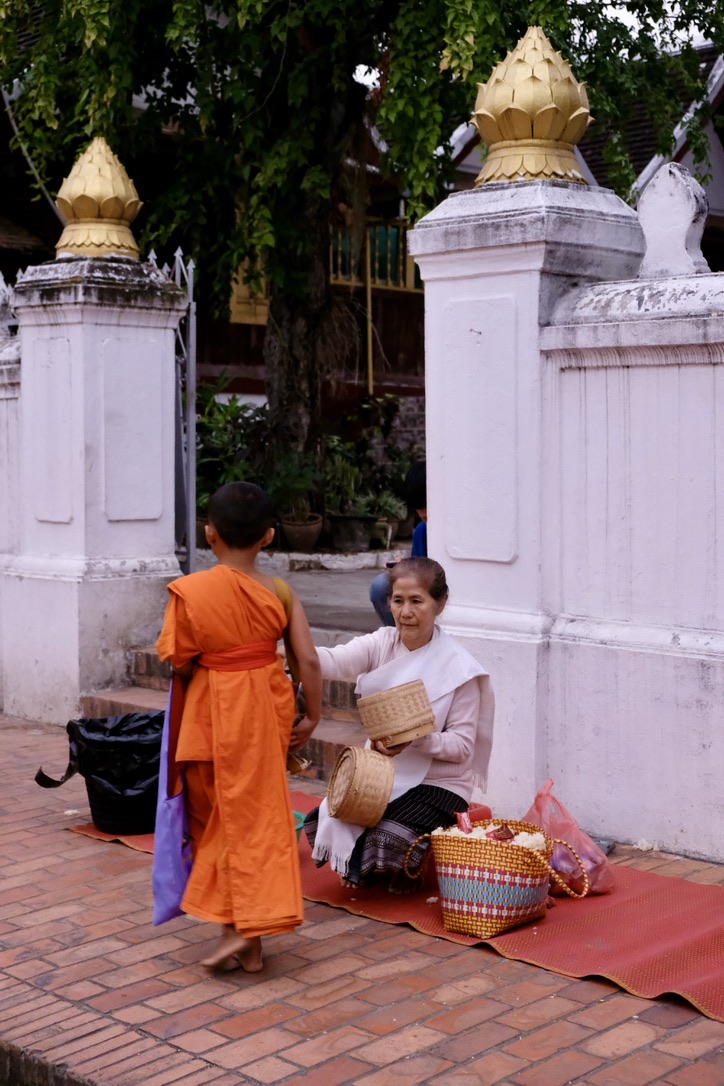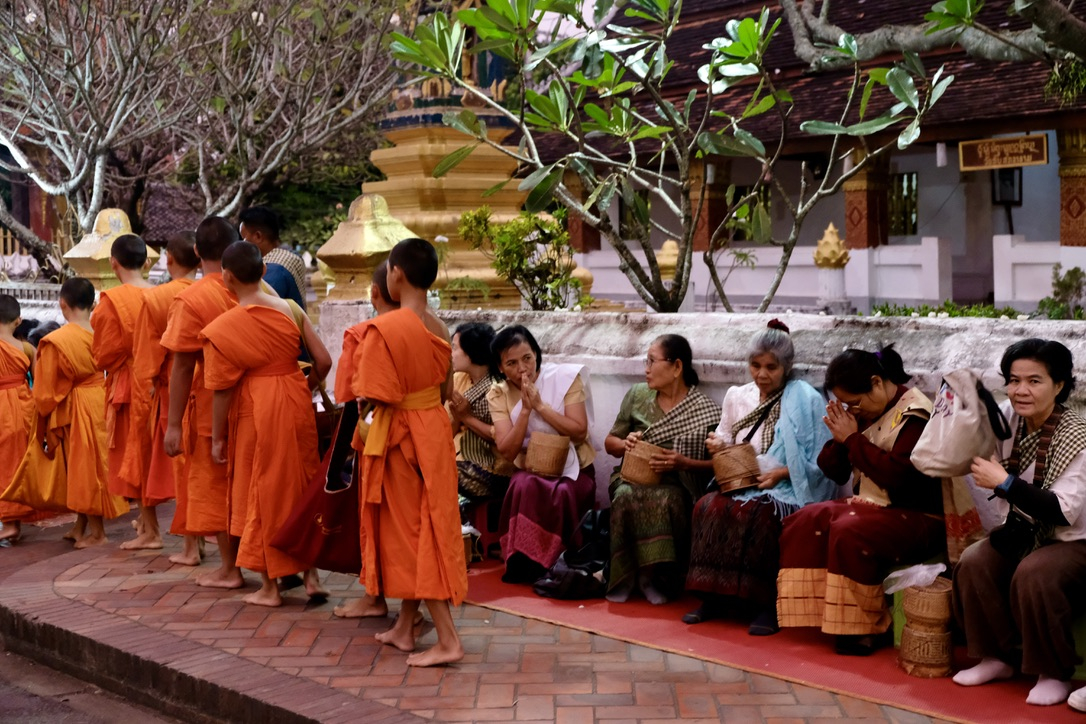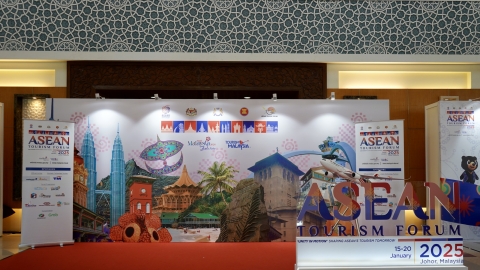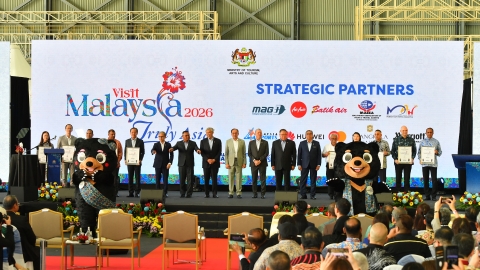The ancient capital of Luang Prabang and the cradle of Theravada Buddhism.
Luang Prabang, located a two-and-a-half-hour high-speed train ride north of the capital Vientiane, truly embodies the national spirit and essence of Laos.
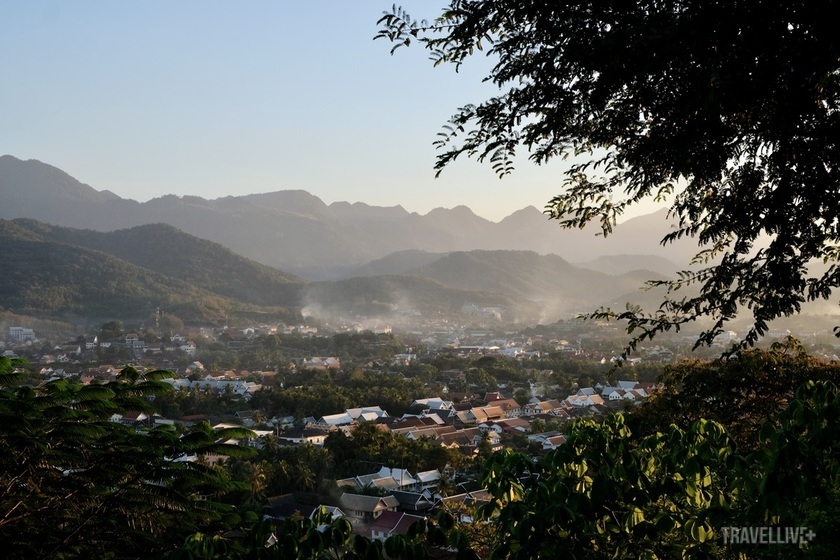
The tiled roofs of Luang Prabang temples as seen from the summit of Phousi.
The history of Luang Prabang is closely linked to the first unified kingdom of Lan Xang of the Lao people. The Muang Xoa region was established by Khun Lo (a Thai leader), ruling peacefully for a century under 15 kings. In 1353, King Pha Ngum unified Laos, establishing the Lan Xang kingdom (also known as Nam Chưởng or Vientiane, "land of a million elephants") and setting its capital there.
Theravada Buddhism in Luang Prabang maintains its spirit of simplicity and unpretentiousness. Monks live modestly, possessing only robes and alms bowls, and strictly adhere to Buddhist teachings. The temples here are also not overly luxurious, but possess a serene beauty, close to nature and everyday life.
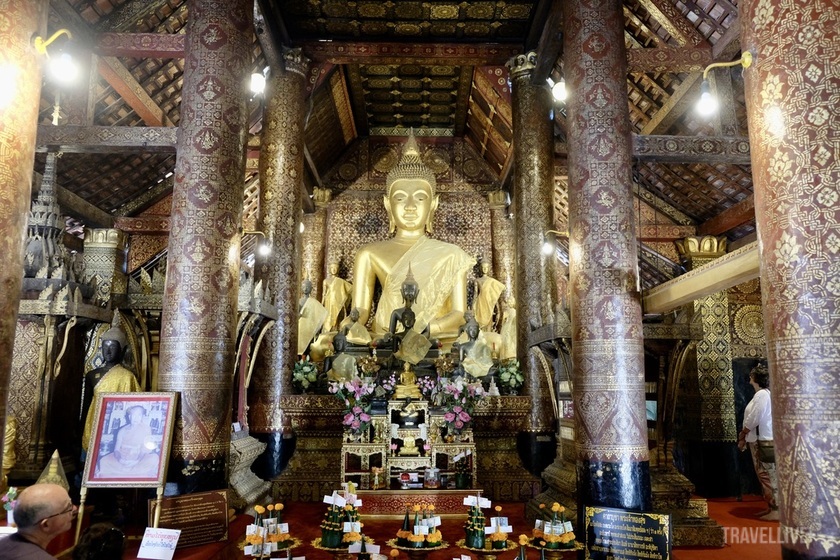
A golden Buddha statue inside Wat Xieng Thong - the oldest temple in the region.
With its ancient temples, some hundreds of years old, such as Wat Xieng Thong; most Laotian men undergo a period of monastic training to cultivate morality, learn to let go, live humbly, and practice the daily Tak Bat alms-gathering ritual; Buddhism has become a way of life, permeating every thought, gesture, and daily activity of the people, creating a peaceful and spiritually rich land.
As the sun rises, monks line up one after another, beginning the Tak Bat alms-gathering ceremony of the day.
"Tak Bat" has a very simple meaning: "Tak" (ตัก) means to scoop or pour, representing the act of "giving" by the people, and "Bat" (บาตร) is the alms bowl that monks carry with them to receive offerings.
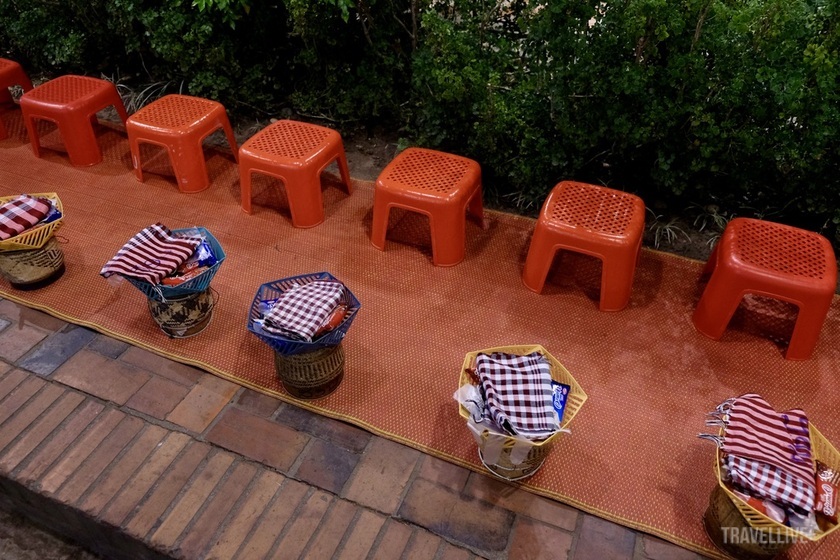
People and offerings eagerly awaited the ceremony.
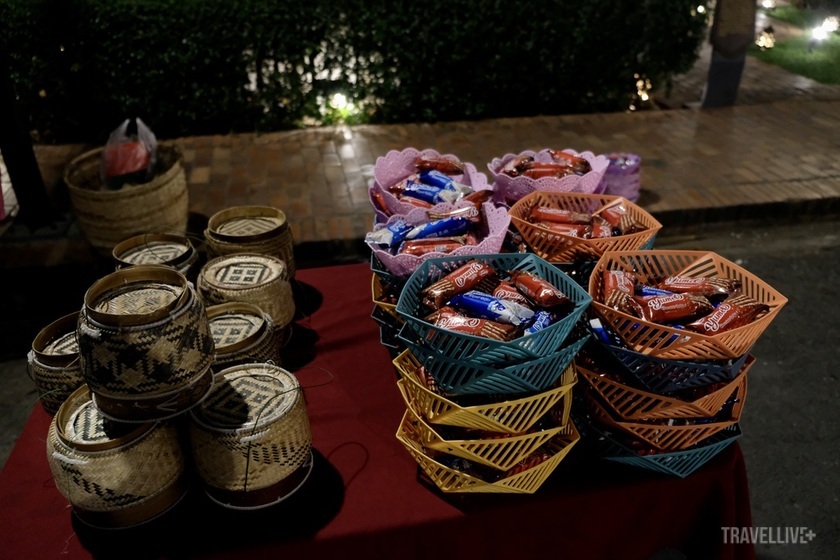
Every morning, as the sun rises, hundreds of monks from various monasteries silently walk along the streets to receive offerings. People sit neatly on rattan benches by the roadside, solemnly wearing their Pha Bieng scarves, preparing baskets of hot sticky rice for the meaningful "giving" ritual.
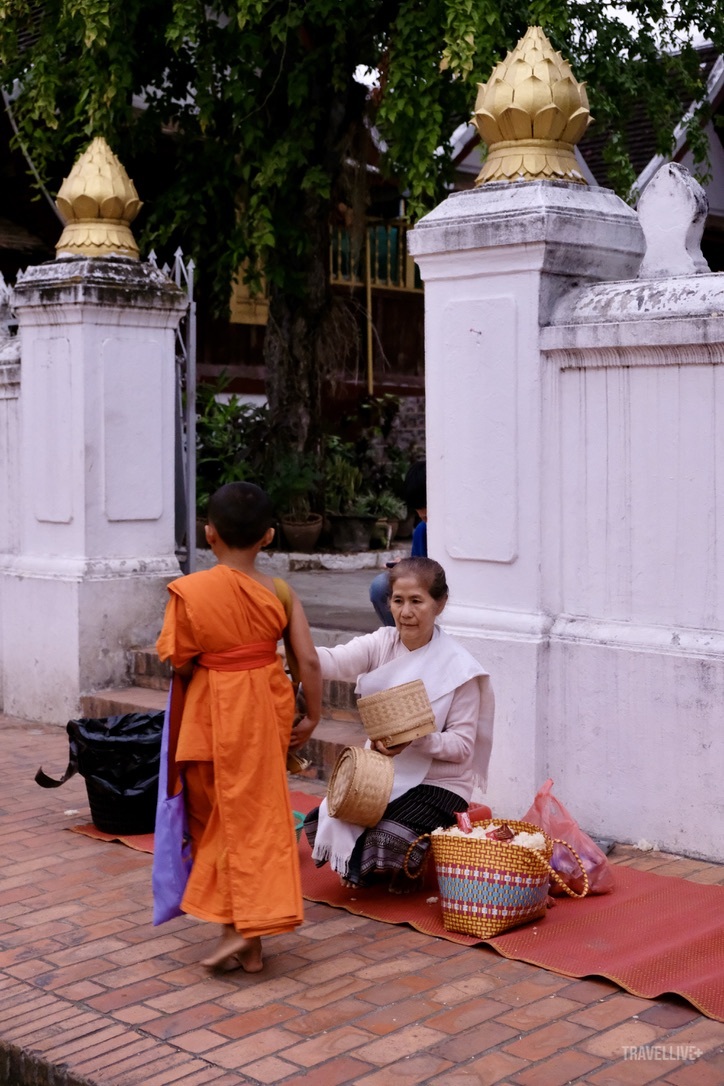
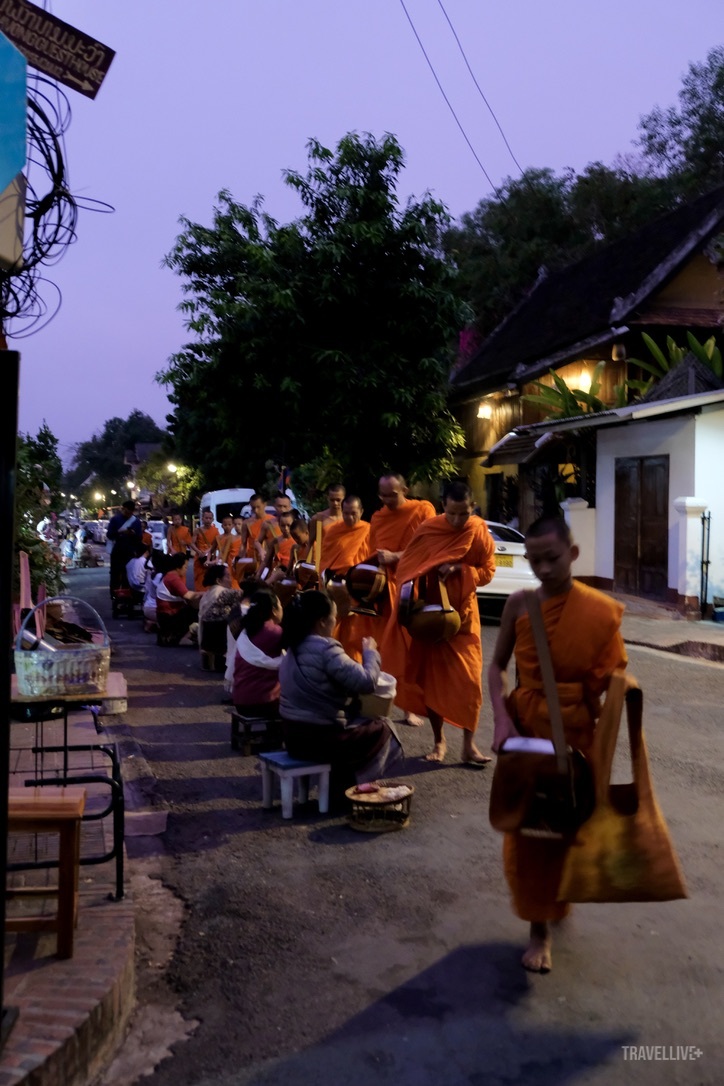
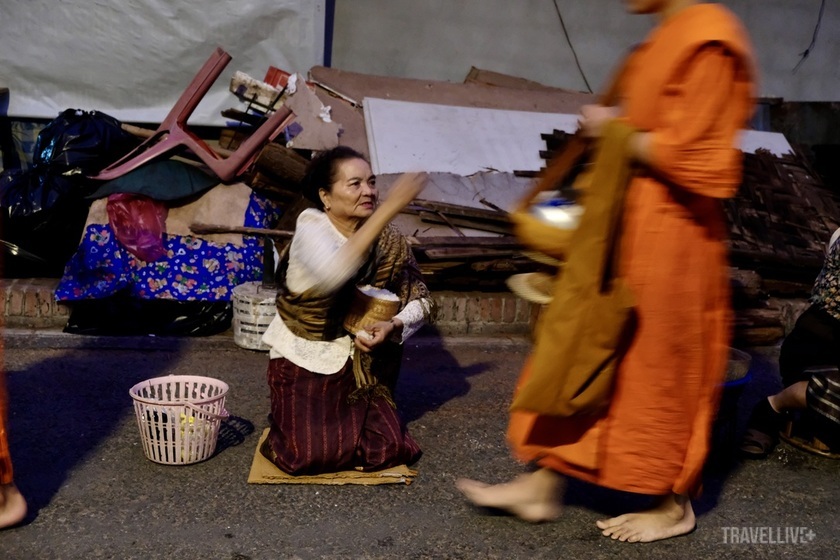
It was just dawn.
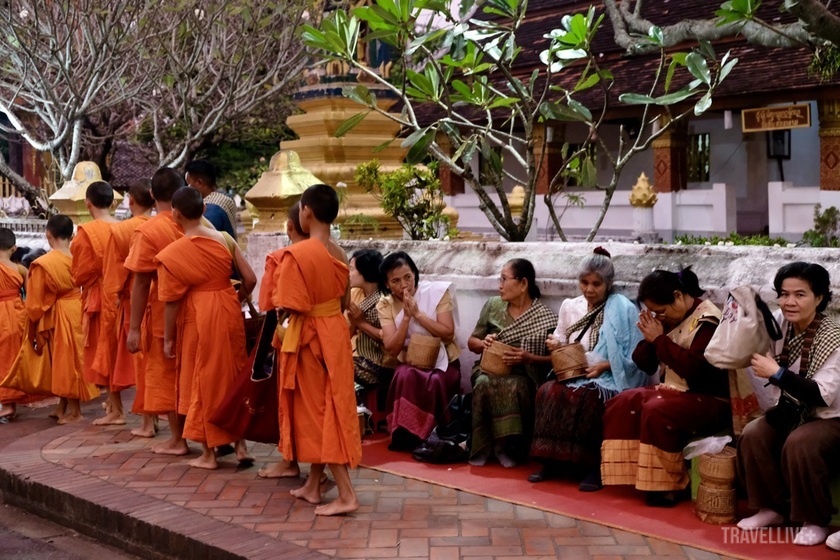
For the people, offering gifts to monks is a way to practice the virtue of generosity (Dāna) – one of the important foundations of Buddhism. They believe that giving with a sincere heart will help accumulate merit and bring peace to themselves and their families.
Following the monks from the temple gate, through the narrow alleys, I was surprised to see a trash can at every street corner, filled with freshly cooked sticky rice and sweets. "That's strange, why do the monks accept offerings and then throw them away?" Perhaps their alms bowls were full…
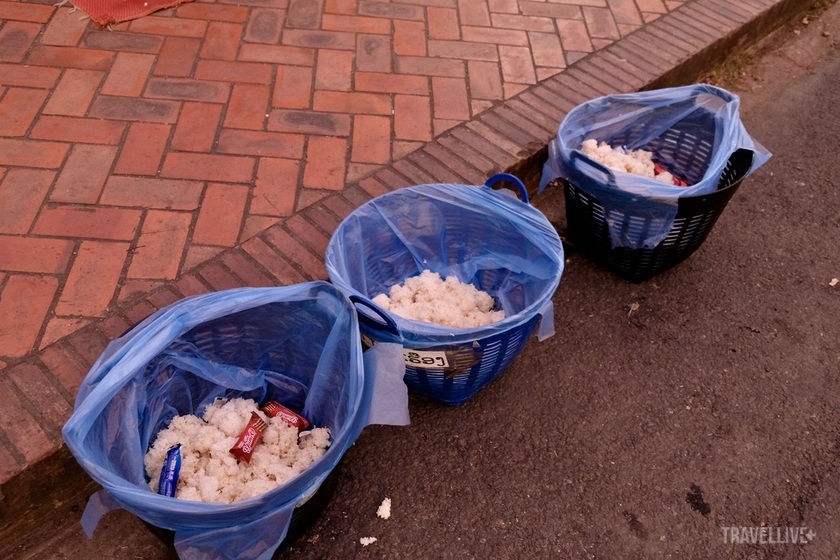
Trash cans lined the entire walkway.
In Buddhist teachings, temples do not have kitchens because alms-gathering is not only a way to sustain life but also helps monks maintain an empty mind, free from worries about making a living, allowing them to devote themselves entirely to spiritual practice and let go of greed and arrogance.
Further on, the image of barefoot monks, clad in saffron robes, silently receiving offerings and then leisurely walking away, subtly conveys the idea of the impermanence of life. No one possesses or holds onto anything forever, nor do we know what we will receive tomorrow, thus fostering compassion for ourselves and those around us.
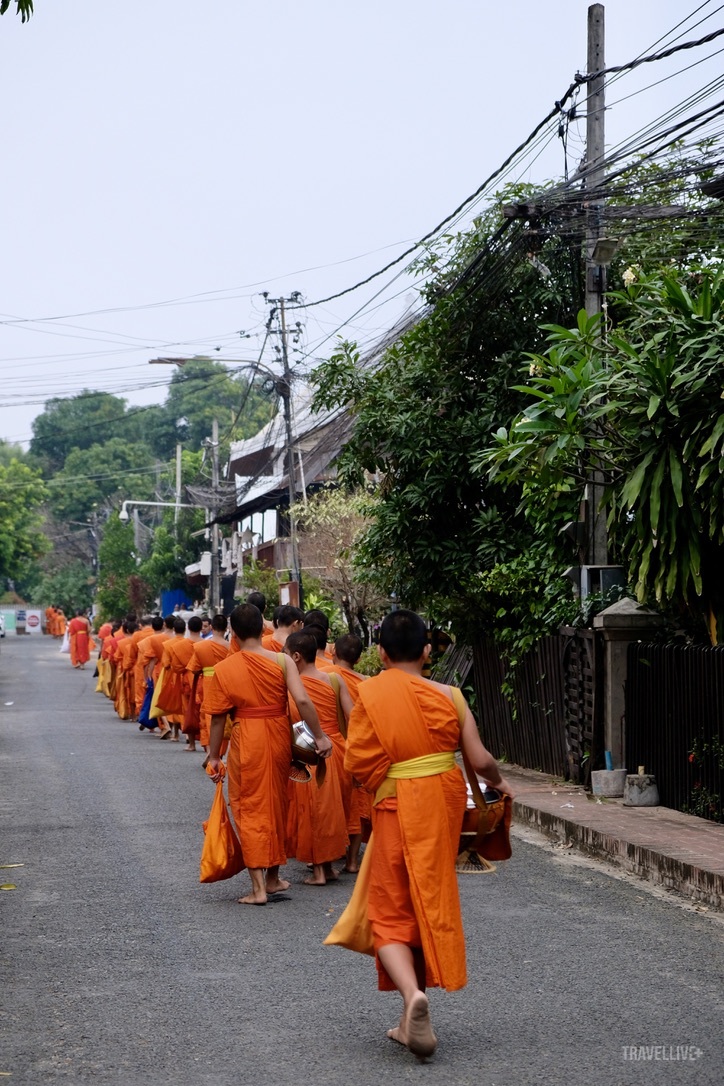
Images show monks lining up one after another along the walkway.
Among the rows of people offering their gifts, I saw a tiny child sitting huddled up, hands clasped, begging for food from the monks. Some monks passed by and gently shared a little sticky rice with the child, while others simply observed silently as if it were the most natural thing in the world…
The spirit of Tak Bat, along with the kindness of the people of the ancient capital.
We were able to experience the "giving and receiving" way of life and practice the compassion, warmth, and hospitality of the local people after just a short break from the alms-gathering ceremony.
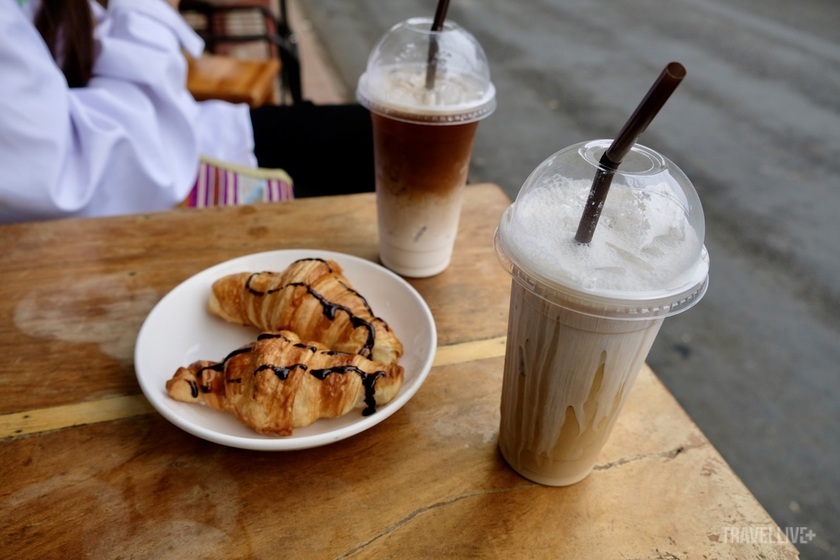
The croissant was a very warm gift.
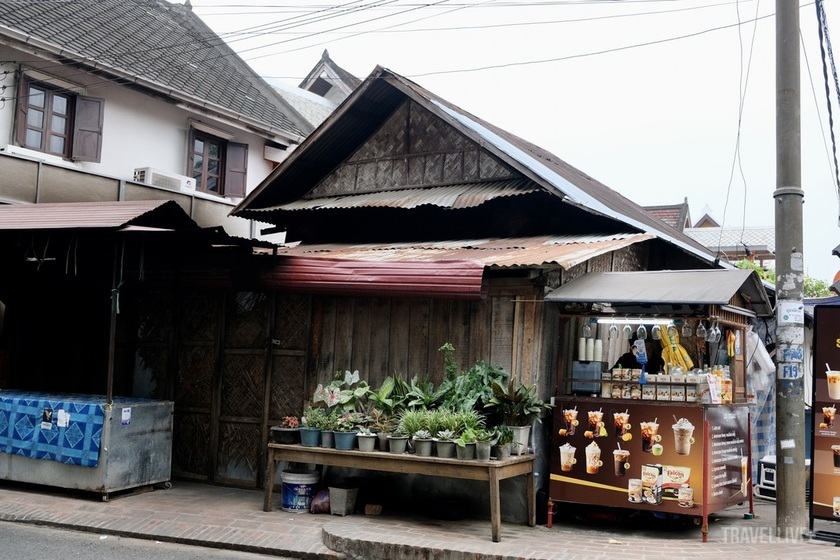
As the sun rose higher, the monks returned to their temples for their meditation, and we filled our hungry stomachs with a portion of Pad Thai and a bowl of Khao Soi before leisurely sitting in a peaceful corner of the street. The coffee shop owner meticulously prepared two frappes, his smile kind and hospitable. Seeing us chatting happily, he brought us two freshly baked croissants and two glasses of strawberry juice, grinning broadly as a gift. Although we didn't understand each other's conversation, the friendliness and genuine nature of the Lao people left a very pleasant impression on me.
He has a wife, and they run a small coffee shop together. When we offered him the money, he didn't take it immediately but called his wife – who was busy at the back gate of Wat Xieng Thong – to come and collect it. Then he looked at us, smiled, and said, "My wife." Oh my, he's so sweet! He's determined not to keep the money; everything is managed by his wife!
Our four leisurely days in Luang Prabang were truly peaceful and unhurried! I didn't think that experiencing a single Tak Bat ceremony with the monks would immediately lead to any profound insights. It's just that the further we went, the more the world unfolded before us, and the blend of culture and religion in Luang Prabang's way of life remains a bright and beautiful aspect for us.
We spent plenty of time strolling around Wat Xieng Thong – the oldest temple in the area, the Palace Museum with its many fascinating historical stories, trying on traditional Lao women's sarongs, and mingling with the relaxed and unhurried locals.
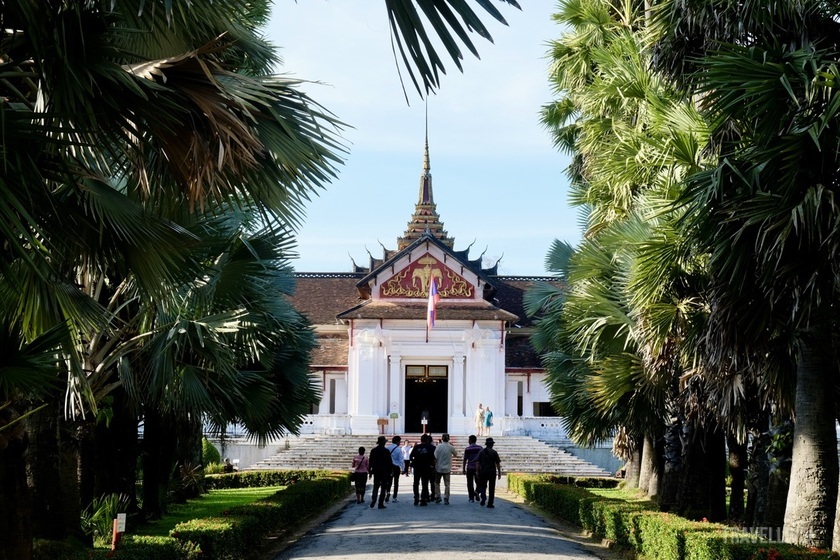
The old palace is truly artistic in Luang Prabang.
Currently, direct flights from Vietnam to Laos are very convenient with Vietjet and Vietnam Airlines, and the high-speed rail system running along northern Laos will be a great advantage for everyone's promising journey to explore Laos.

 VI
VI EN
EN



